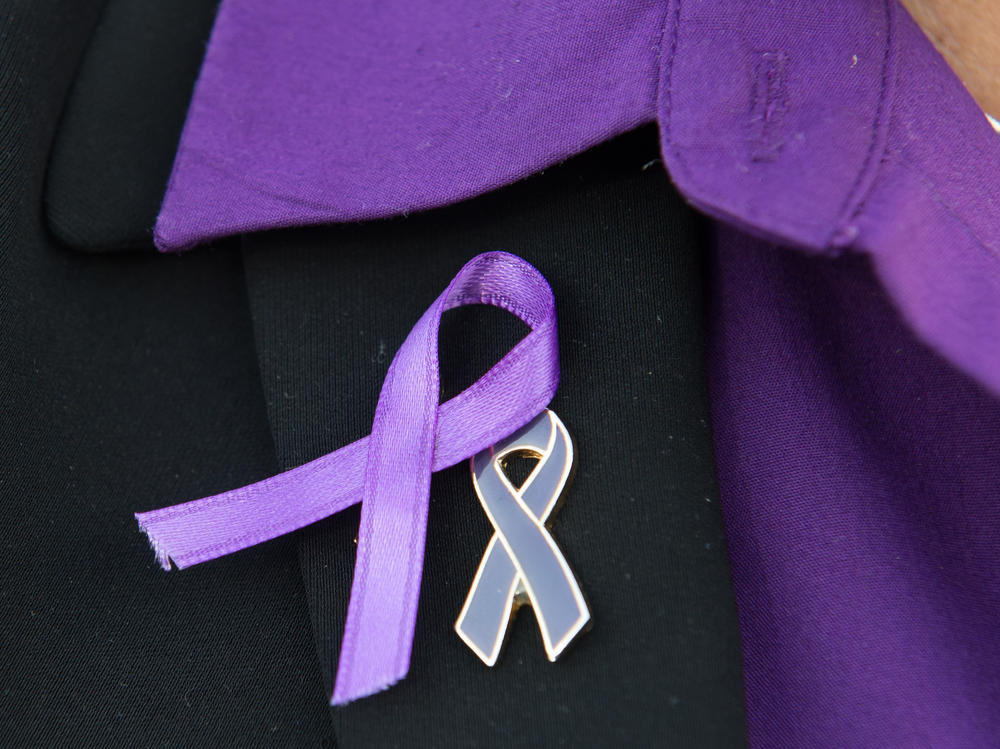Section Branding
Header Content
Today is Purple Thursday. Here's what that means
Primary Content
You may or may not know that October is Domestic Violence Awareness Month, a designated time for communities and organizations nationwide to raise awareness about signs of abuse, lift up the stories of survivors and advocate for policy changes.
Domestic violence is pervasive in the U.S., with the National Institutes of Health calling it a "social and public health crisis, crossing lines of class, race, ethnicity and sexuality." It has also proven to have intensified during the pandemic.
On average, more than 1 in 3 women and 1 in 4 men in the U.S. will experience rape, physical violence, and/or stalking by an intimate partner, according to the National Domestic Violence Hotline.
National and local organizations are encouraging people to come together all month to raise awareness about domestic violence and work to end it. One of those campaigns is called Purple Thursday, which falls on Oct. 21 and urges people to flood social media with pictures of themselves wearing purple.
It's a "simple, yet meaningful way to raise awareness about domestic violence," as the Connecticut Coalition Against Domestic Violence explains.
This year, Purple Thursday also coincides with Spirit Day, an annual LGBTQ awareness day that always falls on the third Thursday in October. Organizations like GLAAD encourage Americans to show their support for LGBTQ youth and speak out against bullying — including by wearing purple. You can learn more about it here.
NPR's Life Kit has these tips for supporting a loved one through domestic violence. Plus, here's a list of hotlines, crisis organizations and other resources for victims and survivors.
If you or someone you know is experiencing domestic abuse, use a safe computer and contact help. That can include a local shelter, or call 911 or the National Domestic Violence Hotline at 1-800-799-7233.
This story originally appeared on the Morning Edition live blog.
Copyright 2021 NPR. To see more, visit https://www.npr.org.

